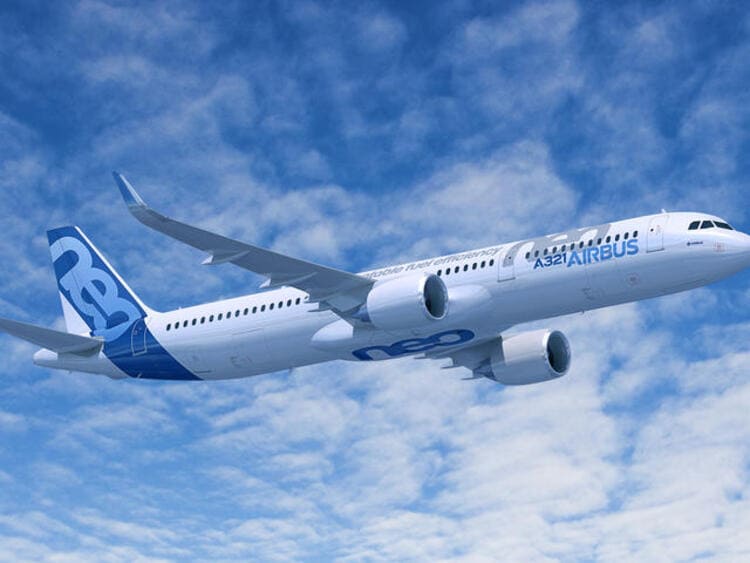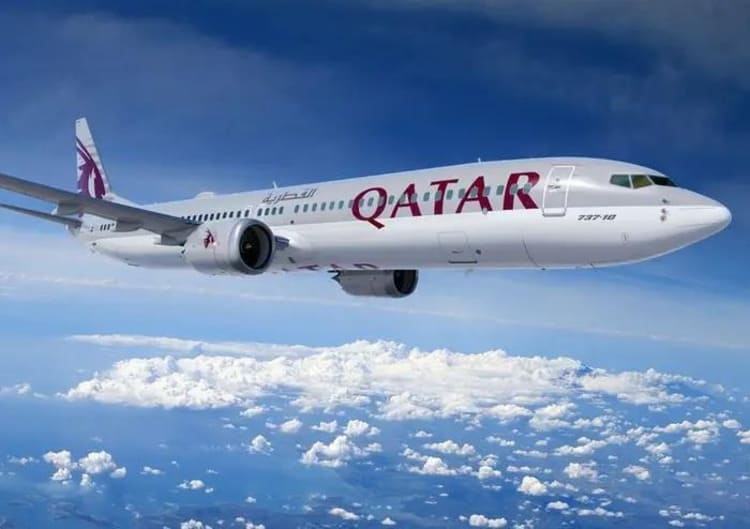By now, it’s official: Qatar Airways has canceled its entire order for the Boeing 737 MAX 10.
If you’ve been watching the airline industry, this move doesn’t come as a shock.
It’s the final chapter in a saga that started with a very public falling-out between Qatar Airways and Airbus—and ends with Qatar going all-in on the Airbus A321neo instead.
Let’s break down what happened, why this matters, and what it says about the future of Boeing’s troubled 737 MAX 10.
Qatar Airways Says Goodbye to the 737 MAX 10
Back in 2022, Qatar Airways ordered up to 50 Boeing 737 MAX 10s—25 firm orders and 25 options.
It was a surprising move at the time for an airline that traditionally relied heavily on Airbus aircraft.
But this wasn’t just about expanding their fleet. It was a power move during a tense dispute with Airbus.
Fast forward to 2025, and those planes are no longer coming.
In a recent interview with Bloomberg, Qatar Airways CEO Badr Mohammed Al-Meer confirmed that the airline has scrapped its entire 737 MAX 10 order.
The announcement came shortly after Qatar Airways revealed a massive new wide-body deal with Boeing, including 160 aircraft—130 Dreamliners (787s) and 30 Boeing 777Xs, plus 50 options.
So yes, Qatar is still doing business with Boeing—but only for its long-haul fleet.
The short-haul plan? That’s all Airbus now.
What’s Behind the Cancelation?
There are two big reasons behind Qatar Airways walking away from the 737 MAX 10.
1. The MAX 10 Still Isn’t Certified
Let’s not forget that the 737 MAX 10 hasn’t even been certified yet.
It’s the largest version of the 737 MAX family, but it’s still facing delays and scrutiny from regulators.
That’s not ideal for an airline like Qatar Airways, which wants flexibility, speed, and a reliable delivery timeline.
In short, they can’t wait around forever. As part of its broader Boeing deal, Qatar likely had enough leverage to exit the MAX 10 commitment with no penalty. And they took it.
2. It Was a “Rebound Order” During an Airbus Feud
The original MAX 10 deal was signed at a time when Qatar Airways and Airbus weren’t even speaking.
In 2021, a dispute over paint degradation on the Airbus A350 grounded several aircraft and led Qatar Airways to sue Airbus for over $600 million.
In response, Airbus canceled Qatar’s existing orders—including 50 A321neo aircraft.
So what did Qatar do? They turned to Boeing.
Many observers saw this as a strategic “rebound” move, more about sending a message to Airbus than about long-term fleet planning.
But the feud didn’t last forever. In 2023, Airbus and Qatar Airways settled their dispute and reinstated the original A321neo order.
That left the 737 MAX 10 as the odd plane out.
The Airline Is Going All-In on the A321neo

Now that the MAX 10s are off the table, Qatar Airways is fully committing to the Airbus A321neo family for its narrow-body fleet.
The airline currently operates 30 narrow-body planes, mostly Airbus A320s.
That number is set to jump to 50 with the arrival of new A321neos and A321LRs—both offering more range, fuel efficiency, and a better passenger experience.
Some will even feature lie-flat business class seats, a rare luxury on single-aisle jets.
These aircraft will help Qatar boost regional and medium-haul routes to high-demand destinations, especially where wide-body planes don’t make sense economically.
Bottom line: the A321neo is a better fit for Qatar’s needs. It’s modern, efficient, and plays nicely with their existing fleet.
What About the 737 MAX 8s Qatar Is Flying Now?
Yes, Qatar Airways is currently flying a few 737 MAX 8s. But those weren’t part of a grand strategy—they were more of a short-term fix.
The planes were originally built for S7 Airlines in Russia, but due to sanctions, Boeing couldn’t deliver them. Qatar took them instead, as a temporary capacity boost.
According to Al-Meer, those planes will be phased out eventually. Qatar has no long-term plans to keep the MAX 8s or expand its MAX fleet.
What Does This Mean for Boeing and the MAX 10?

The cancelation is a blow—but not necessarily a death sentence—for the 737 MAX 10.
Other major airlines still have large MAX 10 orders on the books. That includes:
- United Airlines (164 orders)
- Ryanair (150)
- American Airlines (115)
- Delta Air Lines (100)
- Pegasus Airlines (100)
But the Qatar cancelation raises some questions:
- Will other airlines start rethinking their MAX 10 orders if delays continue?
- Could certification setbacks open the door even wider for the A321neo?
- And what happens if more customers decide the aircraft just doesn’t fit their needs anymore?
Boeing is under pressure to deliver a certified, reliable, and safe aircraft—soon. The longer it takes, the more cracks may appear in its order book.
Airbus Isn’t “Out of the Game”
Even though Qatar just placed a $96 billion order with Boeing, the airline insists it’s not turning its back on Airbus.
In the same Bloomberg interview, Al-Meer made it clear: “It doesn’t mean that Airbus is out of the game.”
In fact, the airline continues to take delivery of A350-1000s and is reportedly considering a new A350 order to be announced as soon as this summer, possibly during the Paris Air Show.
So while the wide-body battle between Boeing and Airbus continues, Airbus still dominates when it comes to narrow-body jets—at least for Qatar Airways.
Final Thoughts
Qatar Airways canceling its Boeing 737 MAX 10 order was more a matter of when, not if.
The order was born from a moment of conflict, not strategy.
Now that the dust has settled between Qatar and Airbus, the airline is free to pursue the fleet it always wanted—one centered around the Airbus A321neo.
Meanwhile, Boeing’s 737 MAX 10 continues to face uncertainty.
With Qatar walking away, the pressure’s on Boeing to prove that the MAX 10 still deserves a place in the global aviation market.
What do you think—will more airlines follow Qatar’s lead and cancel their MAX 10 orders? Or is Qatar just a unique case?
